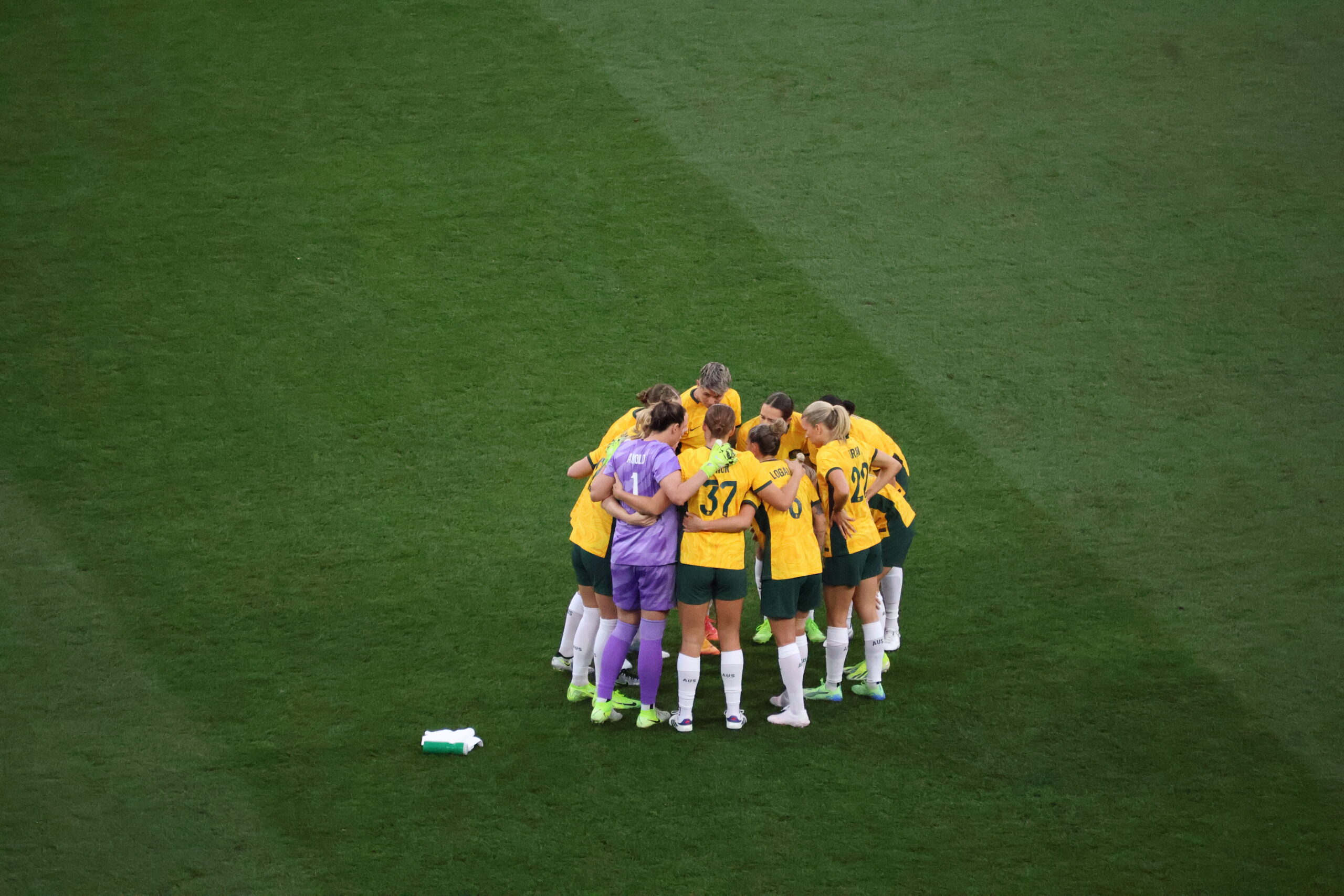Imagine driving your daughter to football training, who dreams of playing for the Matildas, or your son, who recently developed a passion for football thanks to the Matildas, and then turning on the radio only to hear a prominent male host belittle women’s football with harmful comments about the sport. Unfortunately, this became a reality for the Australian public during a recent episode of the Triple M Drive Radio Show.
11.5 million men and women — people of all ages — tuned in to watch the Matildas’ performance against England in the 2023 Women’s World Cup Semi-Final, making it the most watched TV programme in Australian history. Yet, their remarkable achievements and the challenges they’ve overcome were dismissed with careless disregard, broadcast to the Australian public during Triple M’s Drive Radio show recently. In that moment, impressionable young boys and aspiring young girls across the country, heard Australian radio host Marty Sheargold belittle a group of women who have significantly transformed Australian sports.
Sheargold’s comments were not only offensive but also deeply harmful to women’s football and the opportunities it has created for both young boys and girls within Australia. Sheargold, alongside his co-hosts, began talking about the Matilda’s recent performance in the She Believes Cup, held in the United States. Sheargold set the tone with an inappropriate comparison, likening the Australian team to Year 10 girls, suggesting they lack the professionalism of their male counterparts. He continued, stating:
“She believes in what? It better be men.”
The AFC Women’s Asian Cup, which Australia will be hosting in 2026, was brought up for discussion. Sheargold then expressed his negative opinion, saying:
“I’d rather hammer a nail through the head of my p*nis then watch that. Got any men’s sports?”
The fallout from Sheargold’s words were swift. They were met with immediate disapproval from various outlets across Australia. Football Australia promptly issued a statement in response to Sheargold’s remarks, condemning them as “disgusting” and stressing that they belittled the achievements and contributions of the Matildas. Tom Sermanni, Interim Head Coach of the Matildas, called the comments “completely unnecessary and generally outrageous“. Australian Olympic gold medallist Leslie Jones, who also works at Triple M, emotionally addressed Sheargold’s comments in a segment broadcasted on the radio. “Can I say I feel extremely sick“, she continued:
“I am so sorry that anyone who heard those comments, if there were little boys or girls in the car, please know that you are welcome to play sport”.
In response to the controversy, Triple M issued an apology alongside that of Sheargold. Sheargold wrote:
“Any comedy including mine can miss the mark sometimes, and I can see why people may have taken offence at my comments regarding the Matilda’s.”
Matilda’s captain, Steph Catley, spoke out about the remarks:
“I know there have been apologies, but it is just completely unacceptable.”
Following the ‘apology’, Triple M announced that Sheargold would depart from the network, stating that the decision was made ‘mutually’. Sheargold’s departure from Triple M, largely driven by public pressure, marks a small yet significant sign that attitudes towards women’s sports are beginning to change. It’s a welcome and long-overdue shift.
This recent incident highlights the persistent issue of sexism in sports media, not just within Australia, but around the world. Despite the Matilda’s significant achievements, such misogynistic comments highlight the ongoing challenges female athletes face in gaining equal respect and recognition. These comments are not just harmful to the players involved but have far-reaching consequences for young girls and boys who look up to athletes as role models. Sheargold’s comments set a dangerous precedent for how girls and women are viewed in the athletic world. For young girls aspiring to play football or pursue other sports, it sends a message that their efforts and achievements are not valued in the same way as those of their male counterparts. For young boys, it perpetuates harmful ideas about gender roles and the belief that women’s sports are inferior or not worth watching.
The rise of women’s football in recent years is not just a testament to the skill and dedication of female athletes but also to the growing support and recognition of women in sports. As more opportunities are created for women to excel, it becomes increasingly important to challenge and dismantle the kind of misogynistic thinking that Sheargold’s comments represent. Instead of celebrating these athletes and the barriers they are breaking down, remarks like his set a dangerous example, slowing progress and reinforcing negative stereotypes.



